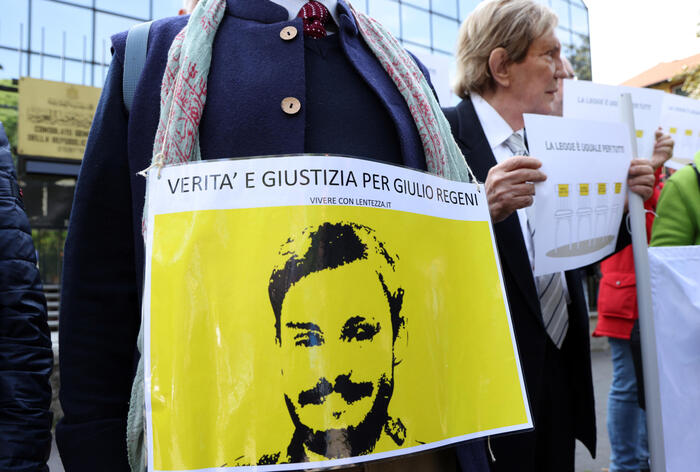The top court ruled that the trial could proceed even though the officers have not been informed of the proceedings against them, as Cairo has refused to cooperate on the case.
Regeni, a 28-year-old Friuli born Cambridge University doctoral researcher into Cairo street-seller unions, was tortured to death in Egypt between January 25 and February 3, 2016.
His work on Egyptian trade unions was politically sensitive and his body was so badly mutilated his mother only recognised him by the tip of his nose.
Rome Chief Prosecutor Francesco Lo Voi voiced satisfaction at being enabled to proceed with the trial.
“Great satisfaction certainly for the possibility of holding a trial according to our constitutional standards, which remain the beacon of our work,” said Lo Voi.
“For the rest, we are waiting for the motivations to see how to proceed, hoping to find the civil plaintiff at our side in the subsequent stages.”
Giulio Regini’s family also expressed their satisfaction.
“We had to resist against this dictatorial will [of the Egyptian government] for seven and a half years while always trusting in the constitutional principles of our democracy,” stated the Regeni family, through their lawyer Alessandra Ballerini.
A Rome judge had asked the Constitutional Court to rule on whether the trial can proceed without the presence of the four Egyptian security agents who have been charged in Italy with his murder and without any proof that they know they are on trial.
The Egyptian authorities have not cooperated with Italian efforts to formally notify the suspects that they are on trial, which had prevented proceedings moving forward.
Efforts to notify the four officers - National Security General Tariq Sabir and his subordinates, Colonels Athar Kamel Mohamed Ibrahim and Uhsam Helmi, and Major Magdi Ibrahim Abdelal Sharif - have been unsuccessful and Egypt has not cooperated by handing over their contact details and legal abodes.
ANSA











